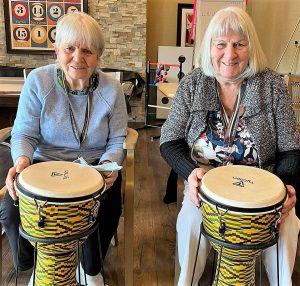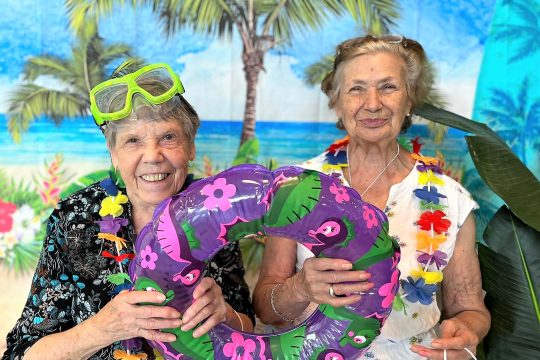
What does retirement mean to you? A happy retirement means many things to many different people. For some, the best way to enjoy their golden years is to keep busy, travel and socialize with friends. For others, a slower pace is more appealing: time spent reading, taking walks, and relaxing at home. One of life’s greatest adventures, retirement is a time to explore leisure activities and spend time with loved ones.
From getting your Zzzzs to delving into education, to we have all the tips you need to make the most of your free time.
Ways to Stay Healthy and Happy During Retirement
1. Develop a routine.
There is no one-size fits-all routine that works for everyone. The key is to build a daily routine that fits your lifestyle.
To get your routine on track, wake up and go to bed at roughly the same time every day (having a routine also helps with sleep!). Then, over breakfast, make an intentional plan for each day. To start your day with purpose, schedule regular daytime activities such as volunteer work, exercise, and hobbies.
Many retirees say that the evening is the most challenging part of the day. Try to write down a few things you’re going to do every evening. For instance, if you like to read, you can schedule reading session from 6 to 7pm every day.
If you live in a retirement community, check the activity calendar for evening social programs, card games, or movie nights!
2. Eat well.
A healthy diet for older adults focuses on whole, minimally processed foods like fresh fruit and vegetables, whole grains, and lean meats. It’s important to make healthy food choices a habit – eat regular, balanced meals rather than be tempted to snack throughout the day.
Take advantage of the extra time to explore healthy cooking options. Why not take in a Chef’s Demo like those offered at our independent retirement living in Aylmer?
3. Try new things, learn new skills or expand your education.
Learning in later years can help people stay independent. This is because challenging your brain with mental exercise activates the processes that help maintain individual brain cells and stimulate communication among them. So, get into the habit of being mentally active during retirement by pursuing a hobby, learning a new skill, volunteering, or mentoring. You can even go back to school to learn an instrument, language, or further your higher education.
4. Exercise your body to stay fit and healthy.
We’ve all heard the phrase use it or lose it. Even if you’ve never been an active person, it’s never too late to start. As we age, it is vitally important that men and women stay active to maintain muscle mass, cardiovascular fitness, and bone health. Also, being active not only gives your physical health a boost, it helps you stay focused and lead a higher-quality life with more energy.
Whether you enjoy swimming in a heated pool like the one at College Park senior living Regina or joining a Drumming work-out, find what works for you.
5. Maintain your social life.
Social support is an important part of well-being. For many, work formed a big part of their social life and it’s common to feel at loose ends after retiring. Fill the gaps by joining clubs and groups.
Find out about the social and physical benefits of walking groups at All Seniors Care.
6. Brush up on leisure pursuits.
According to a recent article in the National Post, “a leisure pursuit is best if it fulfils and defines you. This should be something that you think about and do often, and is one of the key things that will ensure your happiness.”
A happy retirement doesn’t always have to seek out new things to do. Sometimes doing the things that we already enjoy and know how to do makes all the difference. After all, engaging in a leisure pursuit that you are confident in is a great way to build self-confidence and boost your morale. Just remember to step out of your comfort zone every once in a while.
7. Give back to the community.
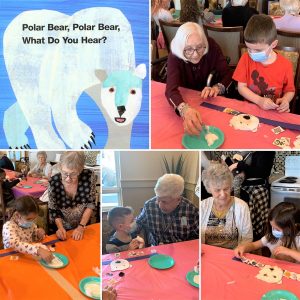 Have you ever thought of volunteering? Perhaps you’d enjoy getting involved with your local youth club, animal rescue centre, environmental organisation, or senior centre.
Have you ever thought of volunteering? Perhaps you’d enjoy getting involved with your local youth club, animal rescue centre, environmental organisation, or senior centre.
At All Seniors Care homes, volunteers are always welcome. Older adults are encouraged to help out with various activities, and we even offer incentives for current residents or senior volunteers who decide to move in.
8. Get your Zzzs.
Sleep is a fundamental human need that can become disrupted in our later years. Seven to nine hours of quality sleep every night helps protect against depression and irritability and can offer everything from more energy to improved focus and better mood.
As it turns out, a walk early in the day goes a long way to promote better sleep at night. Read more tips on how you can get a better sleep here.
9. Create a sense of purpose and meaning.
Make every day meaningful. In fact, studies show that a meaningful life is an indicator of healthy ageing and increased well-being in later life. And it didn’t seem to matter when people found their direction. It could be in their 20s, 50s, or 70s — even when controlled for other factors that affect longevity like age, gender, and emotional well-being.
Stuck for a retirement purpose? Try writing a retirement manifesto.
10. Nurture a positive attitude.
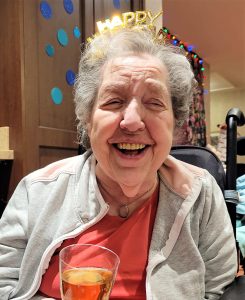 A bright outlook on life helps people be more mentally resilient when facing life’s challenges. It can even boost your physical wellbeing with research revealing “a link between an upbeat mental state and improved health.”
A bright outlook on life helps people be more mentally resilient when facing life’s challenges. It can even boost your physical wellbeing with research revealing “a link between an upbeat mental state and improved health.”
If you’re not naturally inclined to a cheerfulness, practice gratitude daily and look at problems from different angles. You can also take time for to tap into social connections and community for a healthy attitude and increased happiness in retirement.
11. Learn the practice of mindfulness.
Practising mindfulness-based meditation is becoming more popular as a way to relieve stress, anxiety, depression, and even pain. Additionally, studies show that meditation strengthens the hippocampus, the area of the brain that is important for memory, and slows the decline of brain areas responsible for sustaining attention.
Luckily, many communities and retirement homes offer classes in mindfulness and meditation for older adults.
12. Reframe your thoughts and focus on joy.
By changing the way you look at something, you can change your experience of it. Look for the potential in each situation: the trick is in the language you use. For example, instead of thinking that you have to exercise, look at a seated t’ai chi or Pilates class as an opportunity to see friends while having fun and moving. For a more a optimistic and positive frame, try these tips.
Why Retirement Community Residents are Happier
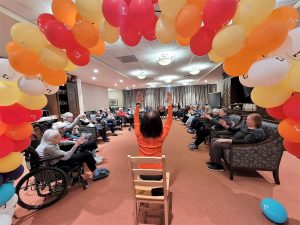 Retirement communities are well positioned to help older adults live a happier retirement by easing them into the change in lifestyle. They can:
Retirement communities are well positioned to help older adults live a happier retirement by easing them into the change in lifestyle. They can:
- Act as role models for healthy eating
- Provide healthy and safe food, in a positive environment
- Encourage residents to spend less time sitting and more time enjoying exercise and basic movement throughout the day
- Provide residents with a wide range of opportunities to be active, including staff-led activities and time for activity indoors and out
- Provide opportunities for socialization and lifelong learning
Similarly, family members have peace of mind knowing their loved ones are in a safe, supportive, warm, and loving environment where they can thrive while they age-in-place. To find out how All Seniors Care can support you or your senior loved in their retirement, contact us today to take a tour of a residence in your area.
Writer – Julianna McLeod
Julianna is a health and wellness expert at All Seniors Care. Her mission is to create content that empowers seniors to form sustainable solutions for lasting health and happiness. She is an experienced writer, editor, and Recreational Therapist living in Toronto.
